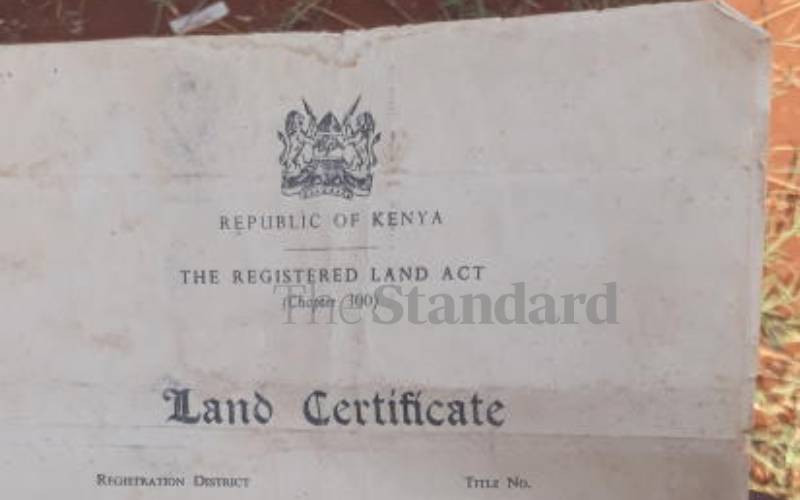×
The Standard e-Paper
Home To Bold Columnists

Seven in 10 Kenyan women who own property do not have a title deed, dashing hopes that constitutional reform and increased economic empowerment will grant women equal property rights as men.
This is despite the fact that one-third of Kenyan women now own a home, with five per cent owning it alone and 28 per cent owning it jointly with their spouse or partner.